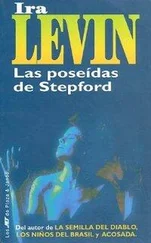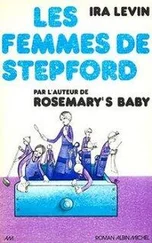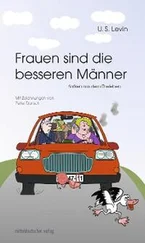“Hi, Li,” Bob said.
Chip said, “Hi, Bob.”
Bob went in and sat down on the side of the bed. He put his telecomp on the floor between his feet, felt Chip’s forehead and ruffled his hair. “Whatcha readin’?” he said.
“Wood’s Struggle,” Chip said, showing Bob the cover of the comic book. He let it drop closed on the bed and, with his forefinger, began tracing the wide yellow W of “Wood’s.”
Bob said, “I hear somebody’s been giving you some cloth about incurables.”
“Is that what it is?” Chip asked, not looking up from his moving finger.
“That’s what it is, Li,” Bob said. “It used to be true, a long, long time ago, but not any more; now it’s just cloth.”
Chip was silent, retracing the W.
“We didn’t always know as much about medicine and chemistry as we do today,” Bob said, watching him, “and until fifty years or so after the Unification, members used to get sick sometimes, a very few of them, and feel that they weren’t members. Some of them ran away and lived by themselves in places the Family wasn’t using, barren islands and mountain peaks and so forth.”
“And they took off their bracelets?”
“I suppose they did,” Bob said. “Bracelets wouldn’t have been much use to them in places like that, would they, with no scanners to put them to?”
“Jesus said they did something called ‘fighting.’”
Bob looked away and then back again. “‘Acting aggressively’ is a nicer way of putting it,” he said. “Yes, they did that.”
Chip looked up at him. “But they’re dead now?” he said.
“Yes, all dead,” Bob said. “Every last one of them.” He smoothed Chip’s hair. “It was a long, long time ago,” he said. “Nobody gets that way today.”
Chip said, “We know more about medicine and chemistry today. Treatments work.”
“Right you are,” Bob said. “And don’t forget there were five separate computers in those days. Once one of those sick members had left his home continent, he was completely unconnected.”
“My grandfather helped build UniComp.”
“I know he did, Li. So next time anyone tells you about the incurables, you remember two things: one, treatments are much more effective today than they were a long time ago; and two, we’ve got UniComp looking out for us everywhere on Earth. Okay?”
“Okay,” Chip said, and smiled.
“Let’s see what it says about you” Bob said, picking up his telecomp and opening it on his knees.
Chip sat up and moved close, pushing his pajama sleeve clear of his bracelet. “Do you think I’ll get an extra treatment?” he asked.
“If you need one,” Bob said. “Do you want to turn it on?”
“Me?” Chip said. “May I?”
“Sure,” Bob said.
Chip put his thumb and forefinger cautiously to the telecomp’s on-off switch. He clicked it over, and small lights came on—blue, amber, amber. He smiled at them.
Bob, watching him, smiled and said, “Touch.”
Chip touched his bracelet to the scanner plate, and the blue light beside it turned red.
Bob tapped the input keys. Chip watched his quickly moving fingers. Bob kept tapping and then pressed the answer button; a line of green symbols glowed on the screen, and then a second line beneath the first. Bob studied the symbols. Chip watched him.
Bob looked at Chip from the corners of his eyes, smiling. “Tomorrow at 12:25,” he said.
“Good!” Chip said. “Thank you!”
“Thank Uni,” Bob said, switching off the telecomp and closing its cover. “Who told you about the incurables?” he asked. “Jesus who?”
“DV33-something,” Chip said. “He lives on the twenty-fourth floor.”
Bob snapped the telecomp’s catches. “He’s probably as worried as you were,” he said.
“Can he have an extra treatment too?”
“If he needs one; I’ll alert his adviser. Now to sleep, brother; you’ve got school tomorrow.” Bob took Chip’s comic book and put it on the night table.
Chip lay down and snuggled smilingly into his pillow, and Bob stood up, tapped off the lamp, ruffled Chip’s hair again, and bent and kissed the back of his head.
“See you Friday,” Chip said.
“Right,” Bob said. “Good night.”
“’Night, Bob.”
Chip’s parents stood up anxiously when Bob came into the living room.
“He’s fine,” Bob said. “Practically asleep already. He’s getting an extra treatment during his lunch hour tomorrow, probably a bit of tranquilizer.”
“Oh, what a relief,” Chip’s mother said, and his father said, “Thanks, Bob.”
“Thank Uni,” Bob said. He went to the phone. “I want to get some help to the other boy,” he said, “the one who told him”—and touched his bracelet to the phone’s plate.
The next day, after lunch, Chip rode the escalators down from his school to the medicenter three floors below. His bracelet, touched to the scanner at the medicenter’s entrance, produced a winking green yes on the indicator; and another winking green yes at the door of the therapy section; and another winking green yes at the door of the treatment room.
Four of the fifteen units were being serviced, so the line was fairly long. Soon enough, though, he was mounting children’s steps and thrusting his arm, with the sleeve pushed high, through a rubber-rimmed opening. He held his arm grown-uply still while the scanner inside found and fastened on his bracelet and the infusion disc nuzzled warm and smooth against his upper arm’s softness. Motors burred inside the unit, liquids trickled. The blue light overhead turned red and the infusion disc tickled-buzzed-stung his arm; and then the light turned blue again.
Later that day, in the playground, Jesus DV, the boy who had told him about the incurables, sought Chip out and thanked him for helping him.
“Thank Uni,” Chip said. “I got an extra treatment; did you?”
“Yes,” Jesus said. “So did the other kids and Bob UT. He’s the one who told me.”
“It scared me a little,” Chip said, “thinking about members getting sick and running away.”
“Me too a little,” Jesus said. “But it doesn’t happen any more; it was a long, long time ago.”
“Treatments are better now than they used to be,” Chip said.
Jesus said, “And we’ve got UniComp watching out for us everywhere on Earth.”
“Right you are,” Chip said.
A supervisor came and shooed them into a passball circle, an enormous one of fifty or sixty boys and girls spaced out at fingertip distance, taking up more than a quarter of the busy playground.
CHIP’S GRANDFATHER was the one who had given him the name Chip. He had given all of them extra names that were different from their real ones: Chip’s mother, who was his daughter, he called “Suzu” instead of Anna; Chip’s father was “Mike” not Jesus (and thought the idea foolish); and Peace was “Willow,” which she refused to have anything at all to do with. “No! Don’t call me that! I’m Peace! I’m Peace KD37T5002!”
Papa Jan was odd. Odd-looking, naturally; all grandparents had their marked peculiarities—a few centimeters too much or too little of height, skin that was too light or too dark, big ears, a bent nose. Papa Jan was both taller and darker than normal, his eyes were big and bulging, and there were two reddish patches in his graying hair. But he wasn’t only odd-looking, he was odd-talking; that was the real oddness about him. He was always saying things vigorously and with enthusiasm and yet giving Chip the feeling that he didn’t mean them at all, that he meant in fact their exact opposites. On that subject of names, for instance: “Marvelous! Wonderful!” he said. “Four names for boys, four names for girls! What could be more friction-free, more everyone-the-same? Everybody would name boys after Christ, Marx, Wood, or Wei anyway, wouldn’t they?”
Читать дальше











